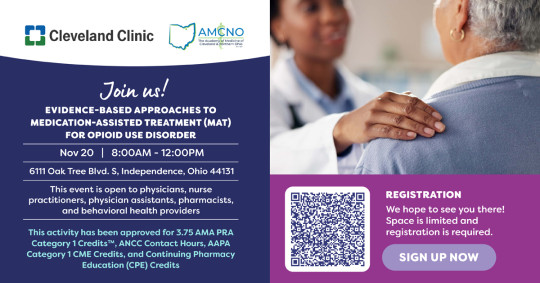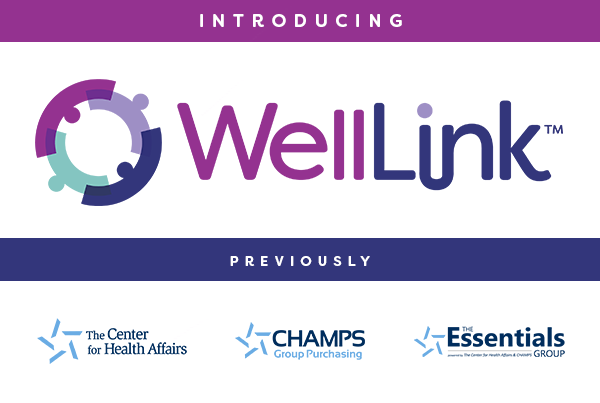
Evidence-Based Approaches to Medication-Assisted Treatment (MAT) for Opioid Use Disorder
Hosted by The Academy of Medicine of Cleveland & Northern Ohio.
Location: 6111 Oak Tree Blvd. S, Independence, Ohio 44131
This event is open to physicians, nurse practitioners, physician assistants, pharmacists, and behavioral health providers
This activity has been approved for 3.75 AMA PRA registration is required.
Category 1 Credits™, ANCC Contact Hours, AAPA Category 1 CME Credits, and Continuing Pharmacy Education (CPE) Credits.
8:00 – 8:15 AM | Welcome and Introductions
Objectives:
• Overview of session goals and objectives
8:15 – 9:00 AM | Session 1: Toxicology and the Role of MAT
Instructors: David Streem, MD, Gregory B. Collins, MD, Endowed Chair
in Alcohol and Drug Rehabilitation at Cleveland Clinic
Objectives:
• Pathophysiology and clinical presentation
• Evidence base supporting MAT
• Pathology requirements
At the end of this course, you will be able to:
• Analyze urine drug testing results effectively
• Explain the clinical significance of results
• Identify the limitations of such tests
9:00 – 9:45 AM | Session 2: MAT in the Primary Care Sphere
Instructor: Robert Bales, MD, Family Medicine, Cleveland Clinic
Objectives:
• Buprenorphine: pharmacology, dosing, induction, and maintenance
• Methadone: clinic-based delivery and safety profile
• Naltrexone: extended-release formulation and patient selection
At the end of this course, you will be able to:
• Describe the pharmacologic profiles of FDA-approved MAT options
(e.g., buprenorphine, methadone, naltrexone) including indications and
mechanisms
• Evaluate emerging evidence supporting long-acting injectable MAT
formulations in primary care.
• Review use of PDMPs (Prescription Drug Monitoring Programs) to identify
medication misuse and support MAT decision-making
• Develop a pain management plan for postoperative patients with opioid
use disorder that balances effective analgesia with relapse prevention and
supports continuity of MAT.
9:45 – 10:30 AM | Session 3: Integrating MAT into Emergency Care
Instructor: Joan Papp, MD, MetroHealth Office of Opioid Safety
Objectives:
• MAT treatment in the Emergency Room
• Walk-in Clinic Care Model
• Coordinating behavioral therapy and wraparound services
At the end of this course, you will be able to:
• Understand emergency and short-term administration of MAT
• Identify potential models for walk-in care clinics for MAT
• Outline practical steps to integrate MAT into clinical settings
10:30 – 10:45 AM | Q&A for Speakers
10:45 – 11:00 AM | Break
11:00 – 11:45 AM | Session 4: Trends and Evidence in Medication
for Opioid Use Disorder
Instructor: Dushka Crane, PhD, LSSBB, Director of Behavioral Health,
Ohio Colleges of Medicine Government Resource Center
Objectives:
• Describe state and national trends in treatment utilization
• Recognize key quality indicators for OUD treatment
• Discuss current improvement efforts and common challenges in care delivery
At the end of this session, you will be able to:
• Identify national trends in the treatment of MAT
• Understand population differences in the usage of MAT, by demographics
and insurance carriers
• Understand treatment trends in co-occurring diagnoses with MAT and OUD
11:45 – 12:00 PM | Session Wrap-Up
For questions contact Jodi Mitchell, Sr. Director, Government Relations & Policy at Jodi.Mitchell@MyWellLink.com

